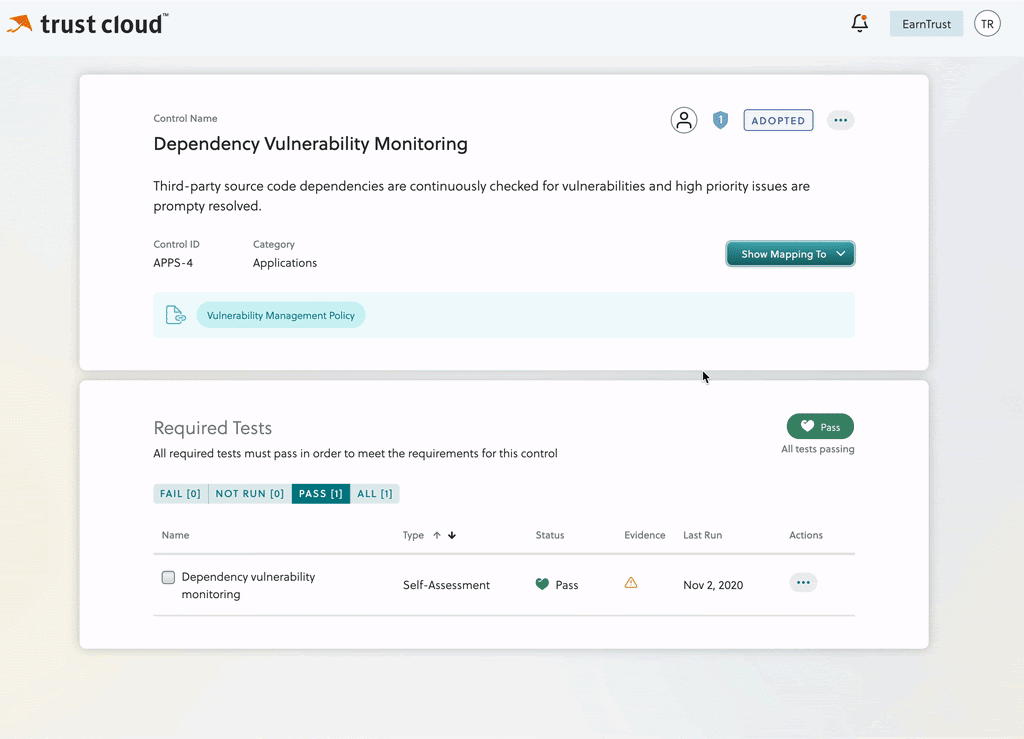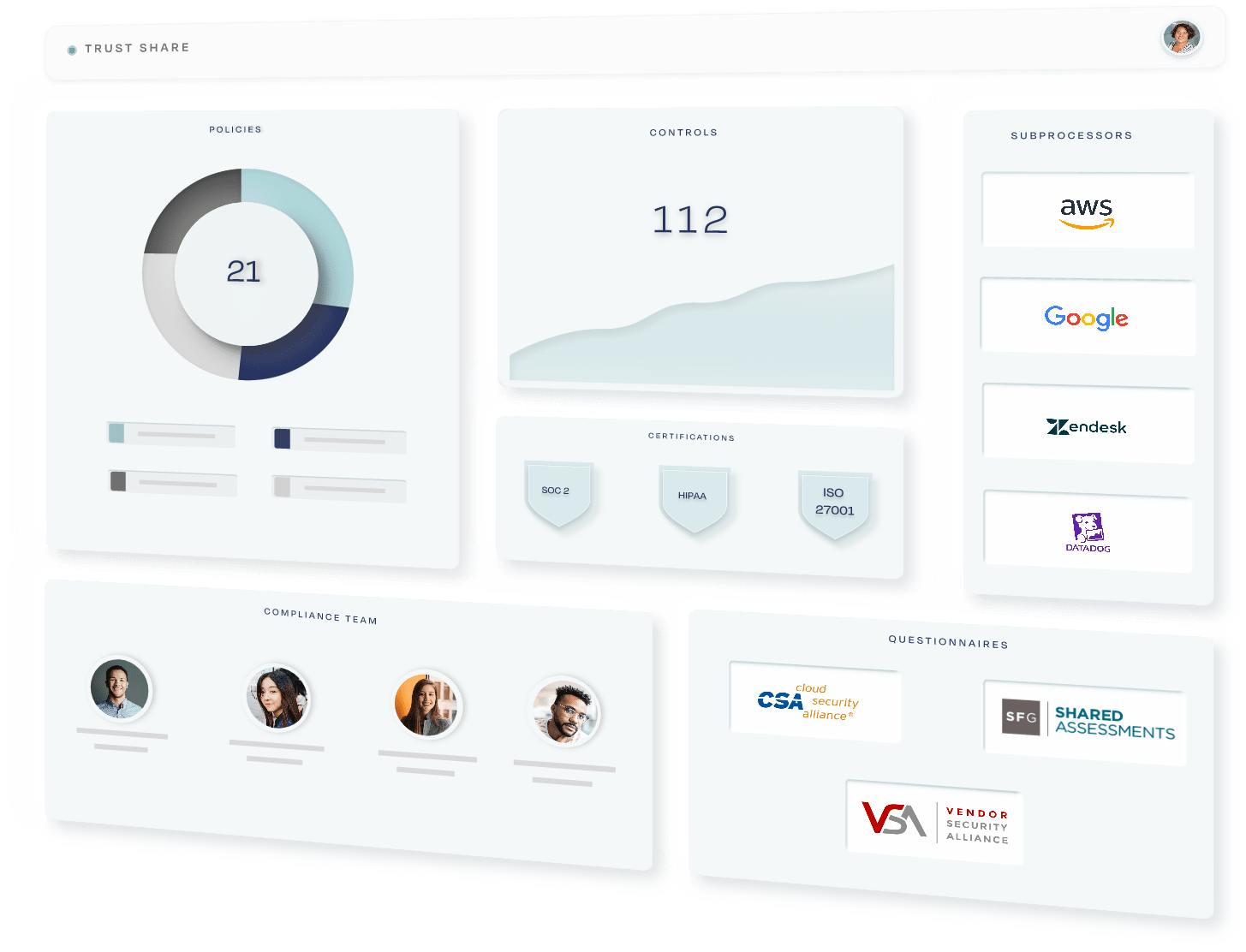Kintent, a startup providing enterprise compliance and security solutions, today announced that it raised $18 million in a Series A round led by OpenView with participation from Tola Capital at a $64 million valuation. It brings the company’s total raised $22 million, which founder and CEO Sravish Sridhar says will be put toward hiring sales and product staff, product expansion and supporting new compliance standards.
Compliance, which touches on issues including regulatory reporting and trade surveillance, wasn’t and easy lift before the pandemic. Organizations lose an average of $4 million in revenue due to a single non-compliance event, according to GlobalScape. But the pandemic brought with it additional challenges as companies embraced digital technologies. Seventy percent of organizations responding to a 2021 Thomson Reuters report say that the pandemic increased their reliance on software to improve decision making, performance monitoring and risk management.
“There is zero trust [in the compliance industry]. Why? Because nobody trusts anything vendors tell them. Compliance is a charade,” Sridhar told TechCrunch in an email interview. “The entire software-as-a-service industry needs a kick in the pants when it comes to security questionnaires and compliance. Chief information security officers (CISOs) need a programmatic way to truthfully evaluate and receive vendor security and compliance information.”
Sridhar, unsurprisingly, sees Kintent as that way. He started the company in 2019 after cofounding IT consulting firm Seven Numerals and “backend-as-a-service” startup Kinvey, which was acquired by Progress in 2017 for $49 million.
The compliance software segment is a crowded space, a fact of which Sridhar is well aware. Vanta, Drata, Anecdotes, Secureframe and Osano are just a few of the vendors offering products that promise to simplify various compliance processes. Polaris Market Research predicts that the enterprise governance, risk and compliance software market will be worth $96.98 billion by 2028.
But Sridhar says that Kintent’s launch was motivated by a desire to offer a more thorough solution than those already on the market.

Image Credits: Kintent
“I started Kintent because every software-as-a-service company has to prove that they have a strong security and compliance program to win deals with enterprises. This is done by getting formal compliance certifications or attestations to standards like SOC 2, ISO 27001, HIPAA, etc., and answering tedious and long security questionnaires that a vendor gets as part of every sales process,” he said. “Most companies do the bare minimum … Every sales team tries to skate [sic] through the security questionnaire process by providing answers that reflect what they think the enterprise customer wants to see … We must transform the status quo from check-the-box compliance to trust. To do that, we need a future where vendors and customers … truthfully share security and compliance information with each other.”
Kintent makes overtures in this direction with automation. One of the company’s products, TrustShare, shares data privacy and security information with customers using a live, auto-generated portal. Another, TrustOps, is designed to streamline adherence to compliance frameworks including the U.S. California Consumer Privacy Act and the General Data Protection Regulation.
Kintent also developed an AI engine, Respond, to read questions in security questionnaires and generate “truthful” answers. Trained on security questionnaires from “enterprises all over the world,” according to Sridhar, Respond draws its answers from a company’s security and compliance program.
“A big problem companies face in every sales process is to manually respond to lengthy security questionnaire assessments before they can win a deal. Each questionnaire is 200 to 300 questions long, and companies get five to ten questionnaires a month,” Sridhar said. “Sales and security teams feel like banging their heads on the wall when they get a security questionnaire.”

Image Credits: Kintent
Can automations like these alone help companies achieve compliance? Not likely — but they can’t hurt. A recent Gartner survey showed that compliance teams that don’t embed their controls into employee processes face a significantly higher rate of compliance failures. Thirty-two percent of employees surveyed said they couldn’t find relevant information when they missed a compliance obligation, while an additional 20% didn’t recognize information was even needed.
Regardless, leaning heavily into automation has proven to be a winning business strategy for Kintent, which grew annual recurring revenue to over $1 million in 12 months. The company’s customer base now includes more than 80 organizations, among them Evisort, Jeeves, Synk, Notarize and DataRobot. The plan is to expand Kintent’s workforce from 25 to 50 to 60 by the end of the year .
“CISOs in enterprises use Kintent to transform their security and compliance program from a cost center into a trust center and revenue enabler for the enterprises,” Sridhar said. “Kintent enables transparent, measurable trust — where trust in business is programmatically verified at all times.”















 English (US) ·
English (US) ·